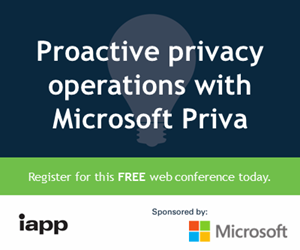Much of the setting of Cory Doctorow’s dystopian novel Little Brother takes place in a San Francisco under complete and total lockdown. The city has been attacked by terrorists, the San Francisco-Oakland Bay Bridge is history, and the U.S. Department of Homeland Security has taken over. Perhaps previously the liberal bastion of the U.S., Doctorow’s San Francisco has now shifted to a surveillance state.
Luckily, no such event has hit the beautiful West Coast city. Yet, with the NFL in town to celebrate the 50th Super Bowl, San Francisco is under a preventative lockdown. The likes of which the city has never seen before.
Got off Sausalito ferry, forced to enter "Super Bowl village" to get to BART. Metal detector, bag search, masses of people. Please send help
— Kashmir Hill (@kashhill) January 31, 2016
Usually there’s a trade off at sporting events or music festivals (the Super Bowl is like a mix of the two) where an individual must give up some privacy for access. For example, the Boston Calling music festival used facial recognition on concertgoers as a preventative measure. And, of course, at most venues, bags are checked and metal detectors are employed at the entrance. It's another example of the classic privacy-for-services exchange.
But the circus created by Super Bowl 50 might make you question what exactly the citizens of San Francisco and its suburbs are getting out of the deal.
In addition to allegedly moving the city’s homeless population away from strategic centers, a palette of surveillance tools are being used around the city, grabbing data from those attending the Super Bowl. And not. As Wired explains in its headline, “If You Go Near the Super Bowl, You Will Be Surveilled Hard.” Notice the headline says “near” and not “to” the Super Bowl.
According to the report, with more than 1 million people expected for the uber-hyped sporting event, the FBI is working together with 60 federal, state, and local agencies “to coordinate surveillance and security at what is the biggest national security event of the year.” And with that, these different agencies, using fusion centers for coordinated efforts are potentially employing IMSI catchers – which trick smartphones into thinking they’re cell towers – automatic license plate readers (ALPRs), cameras, and some facial recognition technology.
Is there someone, or office — a sort of Super Bowl 50 privacy and civil liberties task force — overlooking all of these surveillance efforts to ensure they're justified and proportionate? I hope so.
Fortunately, there is one person at California's Santa Clara County government building who is thinking about these issues, but he's outnumbered. As a supervisor on the county's board, Joe Simitian has drafted a proposal that would require law enforcement agencies to justify the use of surveillance tools, including ALRPs, IMSI catchers, and more. Though the fate of Simitian's proposal is not known, and likely faces an uphill battle, it's good to know that some are trying to put checks into the system.
All this surveillance hoopla has even lead Deadspin – a popular sports blog – to craft a tongue-in-cheek pop quiz: “Fictional Dystopia or the Super Bowl?” Users must determine whether certain statements are from a fictional dystopia or are real because of the Super Bowl and include such statements as, “A committee demands transportation be crippled because power lines disrupt the aesthetic they are going for,” and, “Before you enter the city, security forces will take anything they deem to be ‘dangerous,’” and, “Cameras are everywhere, tracking your every move. Your phone can be tracked.”
Of course, the answer to the last one is because of the Super Bowl. “Sounds like 1984,” the quiz explains, “but the cell phone tracking makes this a current problem for anyone near the Super Bowl this week.”
Luckily for San Franciscans, all this will (hopefully) be over soon, but this tradeoff between access and privacy appears to be growing far beyond the stadium into the city. Going to a game or a concert is one thing – like an opt in – but having your city massively surveilled for a sporting event is an entirely different matter.
Plus, as we saw in at least one commercial last night, surveillance is becoming normalized. Yes, a father can track his daughter while she's on a date through the new tracking system in his car, but a jealous ex-spouse can use it for less moral and potentially dangerous reasons. And then, of course, there's that question about law enforcement access to that tracked data.
As Wired points out in its article, “If all this surveillance in the name of security makes you uncomfortable and you’d rather not have your face, car, and cell phone activity tracked across the Bay Area, you have only one option: Don’t go anywhere near the big game.”
But what if you just happen to live there? What choice in the matter did your average local citizen have in the Super Bowl appearing in their backyard?
photo credit: Golden Gate Bridge, effect of fog via photopin (license)































2 Comments
If you want to comment on this post, you need to login.